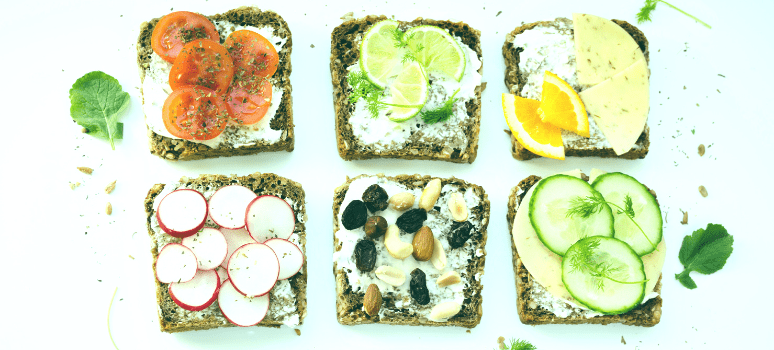We are increasingly aware of the need to maintain a healthy microbiota as a prerequisite for good health and of the importance of food in achieving this balance. However, what foods are best to eat, and how does the way we metabolise food influence us?
Our immune system, mental health, absorption of energy from food, bowel motility or hormone production depend to a large extent on the balance of our immune system, our mental health, the absorption of energy from food, the motility of our gut or the production of hormones. gut microbiota. This organ contains a wealth of bacteria, neurons or genes and is proving to be a source of health, but what about the health of the human body?What does their proper functioning depend on? Nutrition is one of the keys.
In developed countries, with access to greater resources, we are eating a diet that leads us away from health. Rich in fats and proteins and increasingly poor in carbohydrates, nutrition brings us closer to diseases. Obesity, cardiovascular disease and an imbalance in the gut microbiota are some of them.. The study The effects of fat on gut microbiota and faecal metabolites and their relationship to cardiometabolic risk factors"."published in the "British Medical Journal", links the fat consumption with the highest presence of inflammatory markers in the blood.
The research compared the effects of more or less fat and carbohydrate intake on three types of diet, over six months, with equal calorie intake among a population of young adults. One of the conclusions is that the more traditional diet (with higher vegetable consumption) leads to an increase in protective chemicals that produce beneficial species of bacteriaspecifically, a type of bacteria that produce butyrate. These fatty acids stimulate the immune system by inducing the production of regulatory T-cells in the gut - of great importance in containing the body's inflammatory responses and autoimmune disorders and related to type 2 diabetes.
Blood markers of inflammation detected in those with the highest fat diets are used to detect the presence of inflammation in the blood of those with the highest fat diets. inflammation in the body and are even linked to cancer and cardiovascular disease.. The publication of the study suggests that markers of inflammation in the blood may be related to soy consumption.
If diet influences the balance of the microbiota and its composition, it is also important to take into account the way our microbiota metabolises our food and their epigenetic effects and alterations in the immune system, among others.
In particular, the protein intake linked to diabetes 2 or obesityboth metabolic diseases that are public health problems in Western society. This happens because proteins are metabolised in the large intestine into branched-chain amino acids, the metabolites. In addition to affecting metabolism, these substances affect the immune system and the nervous system.
So what to eat to maintain a healthy gut microbiota?
From the European Society for Neurogastroenterology and MotilityThe authors of the study, who have been published in the journal "The microbiota", state that diet, metabolism and lifestyle are all factors that can affect our microbiota. Specifically, with regard to diet, they are as precise as they are generic: A varied diet is best, although richer in fibre and carbohydrates.
This is because foods, for example green leafy vegetables, are beneficial for the microbiota when they are considered as a whole, with all their properties and not with their elements - fibre, iron, vitamins... - separately. On the other hand, the morphology of the intestine or the way in which each person metabolises, recommends following certain tailor-made nutritional recommendations, as we do in Biosalud Day Hospital with our patients.
The truth is that for biological medicine, nutrition is an important part of the treatment and requires a strong commitment from the patients; in many cases this "therapeutic nutrition" involves very strict diets that focus on organic food and the elimination of sugars and alcohol, among other foods..
Foods found in the Mediterranean diet that support the balance of the microbiome may be the apple, onion, sauerkraut or yoghurt. Less common, and many originating from oriental diets, is the Kefir, tempe, soy sauce, miso or umeboshi plums. These foods can be found today in many organic food shops and it is not difficult to incorporate them into our diet.
- Fruits and vegetables contain many nutrients, especially complex carbohydrates that support "good" gut bacteria.
- reduce consumption of animal protein and replace it with legumes, nuts or tempeh.
- staple foods, such as bread or oil, must be of quality, which means that they have not been produced with complex or manipulated processes.
What can we avoid? The stress is a factor that affects our health enormously. It accelerates cell oxidation, affects acid production in the stomach, intestinal motility and the balance of flora responsible for proper nutrient absorption.
In addition, we should eliminate all toxins from the diet such as alcohol, refined sugars and carbohydrates and all processed foods. Also, avoid antibiotics or anti-inflammatory drugs, and in any case, only take them when prescribed by a doctor.
*The content of this article is informative and in no way replaces a diagnosis or medical prescription to be made by a doctor.


